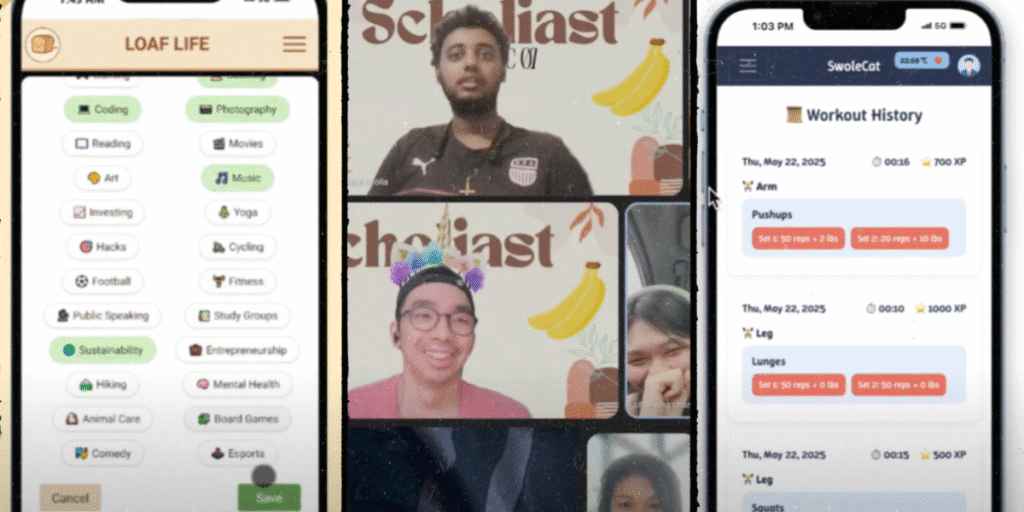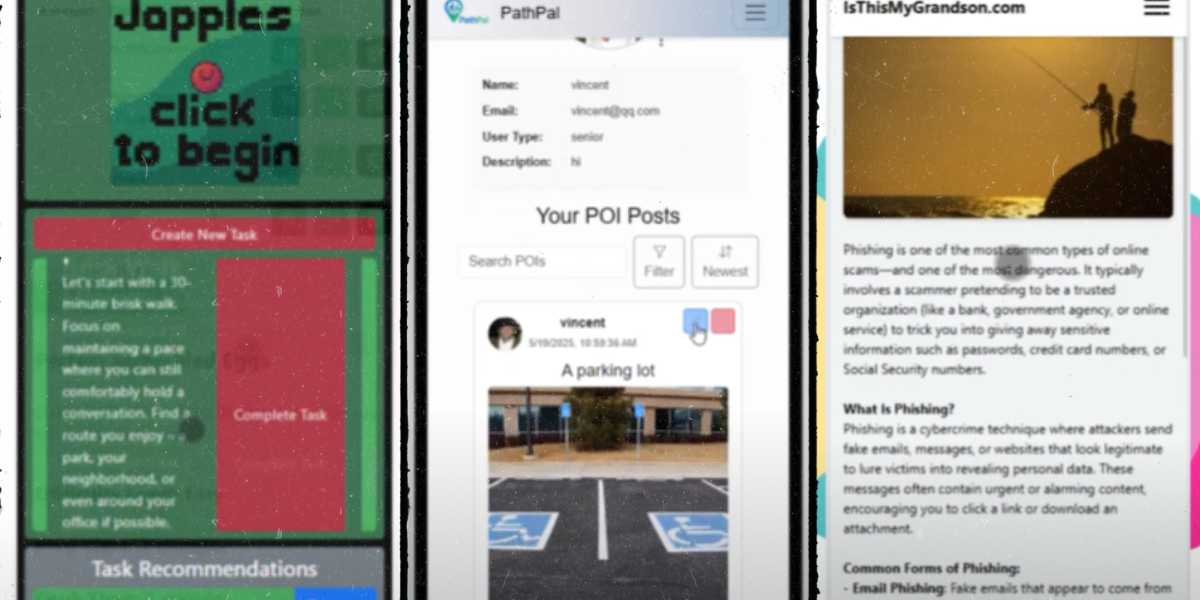
In their annual first-year app-creating project, Computer Systems Technology (CST) Diploma students dove headfirst into AI and real-world challenges. This year’s innovation theme was: ‘For a Better World’, and on Friday, May 23, all 45 projects were presented.
Over four intense weeks, student teams designed, built, and launched a fully functional, mobile-first, browser-based web application, tackling pressing issues – from environmental risks to community safety. This hands-on journey empowered students to collaborate, problem-solve, and create meaningful technology with lasting impact.
Just before the presentations start, Computing faculty Marco Ho notes: “We threw in AI as a curveball. Many of you didn’t just meet the challenge, you made it fun and relevant to your app. That’s the kind of agility the industry is looking for.”
The innovation challenge is more than just a class project – it’s a call to action. Students form their dream teams, pitch ideas, prototype solutions, and iterate to build fully functional web applications. “The future isn’t waiting – it’s yours to build,” says Computing faculty Carly Orr.
Showcasing creative solutions
This year’s projects showcases creativity and commitment to positive change. Here’s a selection of the many exciting projects:
- RiskMapper: Uses geo-data to visually communicate climate risks, helping communities prepare for environmental changes.
- BeCool: Combats food insecurity through a community fridge-sharing platform, building connections and generosity.
Many apps tackled social challenges, like:
- IsThisMyGrandson.com: Educates users about online AI scams in a fun, engaging game, raising digital literacy awareness.
- PathPal: Supports people with mobility challenges by sharing accessible routes, promoting independence and inclusion.
Students also explored personal wellness and lifestyle innovations:
- Japples: Gamifies healthy habits
- SwoleCat: Turns fitness into an interactive adventure where users level up a virtual cat companion.

Lessons learned: More than just coding
Behind these creations were valuable lessons on teamwork and communication. “It’s more than coding – teamwork is really important,” says Computing faculty Patrick Guichon. “2800 simulates a real work environment. You hit merge conflicts, duplicate code, and have to pivot when something’s not working. These experiences are exactly what you’ll face in the real world.”
Clear, consistent communication was a recurring theme. One student notes, “In-person meetings were definitely better than online. Sometimes digital communication isn’t the same as being in person.”
Marco Ho emphasizes the value of planning and flexibility: “Some teams decided to meet in person instead of virtually – it made a difference. These takeaways, like pivoting technologies or planning sprints ahead of diving into code, are lessons you’ll carry into future terms and jobs.”
Students learned to break big tasks into manageable daily goals, staying agile through iterative development. Sprints were followed by celebrations, with one team reflecting: “We had lunch and small parties after each sprint. We enjoyed the journey.”
Celebrating empathy and user focus
The projects not only allowed students to apply technical skills such as CSS, HTML, JavaScript, APIs, and database management but also emphasized collaboration, agile development and user-centred design – core competencies for future software developers.
“We were so proud of the empathy in your design thinking,” says Carly. “That’s what will set your software apart. It’s how it intersects with users that makes it meaningful.”
Innovation recognized
Ultimately, two projects won in the following categories:
Most Innovative & Best Teamwork:
- Scholiast: Transforms study materials into personalized quizzes, flashcards, and summaries using active recall and spaced repetition to boost learning and organization.
Best UI/UX Design:
- Loaf Life: A mobile-first app that helps students save money by crowdsourcing and mapping free food, discounts, gigs, and life hacks across Vancouver.
Carly concludes: “BCIT students are hired because they’re professional, adaptable, and can rise to the occasion. These projects are something you’ll be proud to show employers.”